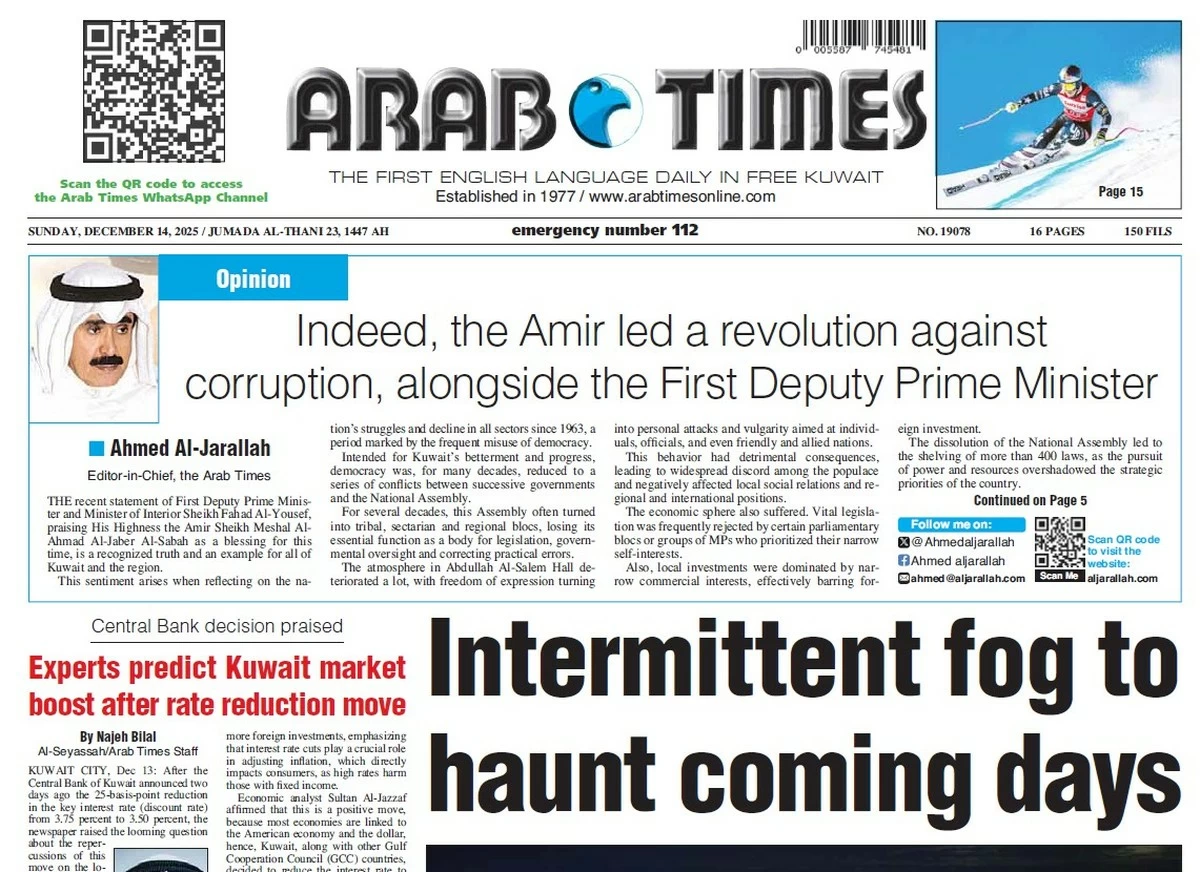08/09/2024
08/09/2024
AT its recent meeting, the Council of Ministers reviewed a visual presentation detailing the ministry’s preparations for the 2024/2025 academic year. This included arrangements for rehabilitating schools, securing teaching staff, and providing textbooks. However, the presentation did not introduce any new developments.
The selection of food companies for school cafeterias, approved by the Public Authority for Food and Nutrition, was also discussed.
This might either be a joke or a sign of misdirection. When members of the executive authority focus on such a minor procedure, which could be managed by an assistant undersecretary, it suggests that the ministers may have lost their sense of purpose.
Their responsibilities extend far beyond merely reciting the well-known preamble at the start of the school year. What is more useful is a reform of the education system, which has been corrupted after years of irresponsible practices, chaos, and the graduation of illiterate or inadequately educated individuals.
The Council of Ministers has a roadmap outlined by His Highness the Amir Sheikh Mishal Al-Ahmad during his historic speech last May. The Council must focus on implementing this roadmap, as the proposed measures represent a significant reform revolution, with His Highness identifying issues that need urgent attention.
The people of Kuwait now feel more confident about their future and that of the coming generations. These decrees have restored Kuwait’s power and pride, and have offered hope for the substantial reforms the country urgently needs.
To achieve this goal, the executive authority must keep up with the roadmap, which is of considerable importance for the state’s institutions, including the Council of Ministers.
Unfortunately, it seems that some individuals have not grasped the significance of the historical messages conveyed by His Highness. Since the establishment of the Council of Ministers, there has been little indication that the state is moving in the right direction.
For instance, at its last meeting, the Cabinet discussed the issue of “school cafeterias” and the ban on certain types of foods, but this falls outside its jurisdiction.
There are more pressing issues that need attention, such as amending the constitution and laws, initiating infrastructure projects, developing the industrial sector and the economy, developing islands and beaches, and opening up to the world.
In reality, prioritizing the opening of the country to national and foreign investments, among other urgent matters, should be at the top of the agenda. However, each session seems to feature decisions that stray from the main concerns of the people.
When His Highness the Amir issued his decisions, it provided much-needed relief to the people, who have endured years of interference and overlapping powers and jurisdictions.
As we mentioned, lawmakers and influential figures had the upper hand in approving laws and imposing decisions that led the country into a vicious cycle.
To deal with these issues, Kuwaitis have placed great hopes in the newly appointed Council of Ministers, which includes several technocratic ministers. This change has sparked optimism among people about the potential for improved performance and development.
This Council is supposed to consist of specialists and be supported by experienced advisors to realize His Highness’s aspirations.
Unfortunately, to date, there has been no noticeable shift in the approach of successive Councils of Ministers, leading to a sense of stagnation in Kuwait. When ministers focus their time on secondary issues, it suggests a lack of direction.
Therefore, we hope that the ministers will work on aligning their efforts with the vision articulated by His Highness the Amir in his speech last May, and refrain from spending time on matters that fall within the jurisdiction of their assistants.
By Ahmed Al-Jarallah
Editor-in-Chief, the Arab Times



